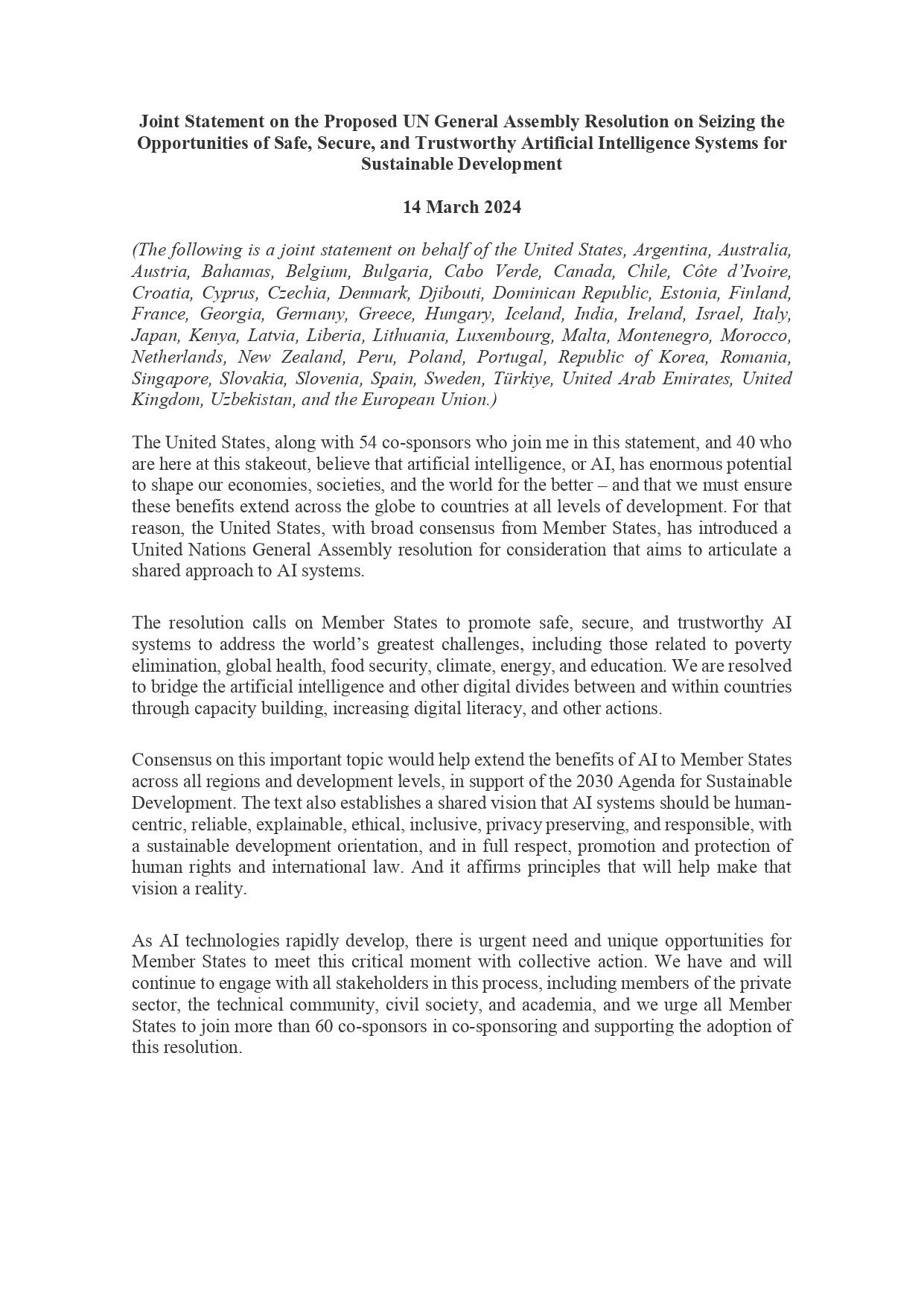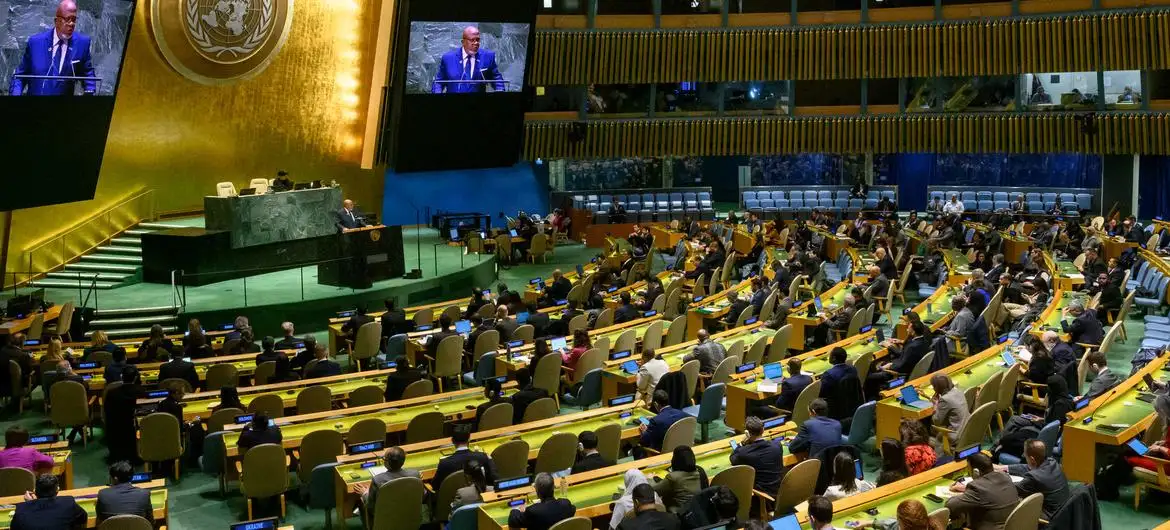In a historic move, the United Nations General Assembly has unanimously adopted its first global resolution on artificial intelligence (AI), co-sponsored by Kenya and the United States.
This resolution marks a significant step towards the global governance of AI, aiming to bridge digital divides and ensure the safe, secure, and equitable development of AI technologies worldwide.
Key provisions of the resolution

The resolution, which garnered support from more than 120 nations, sets out a framework to address the various challenges posed by AI.
Key provisions include:
- Promotion of Safe and Trustworthy AI Systems: The resolution emphasizes the development of AI systems that are secure and trustworthy, aiming to prevent the misuse of AI technologies and mitigate risks such as job displacement and misinformation during elections.
- Bridging Digital Divides: A major focus of the resolution is to bridge the digital divides both between and within countries. It seeks to promote technology transfer, enhance digital literacy, and ensure that developing countries have equitable access to AI technologies.
- Protection of Human Rights: The resolution includes strong language on protecting human rights, including personal data protection, and ensuring that AI development does not undermine fundamental freedoms. It also addresses issues related to linguistic and cultural diversity, as well as equality across gender, racial, and disability lines.
Kenya’s role and contributions
Kenya played a crucial role in shaping the resolution.
Martin Kimani, the outgoing Kenyan envoy to the UN, highlighted that Kenya negotiated for the inclusion of development aspects, digital divide bridging, and protections for linguistic and cultural diversity, as well as disability, gender, and racial equality.
Philip Thigo, Kenya’s newly-appointed special envoy on Technology, described the adoption of the resolution as a “pivotal and historic moment.”
Thigo, who is also a member of the UN Secretary General’s High-Level advisory body on AI, praised the collective efforts of the Kenyan mission in New York for their contributions to this landmark achievement.
Global reactions and implications
The resolution has been widely lauded as a significant advancement in international efforts to regulate AI.
U.S. Ambassador to the United Nations, Linda Thomas-Greenfield, stated, “Today, all 193 members of the United Nations General Assembly have spoken in one voice, and together, chosen to govern artificial intelligence rather than let it govern us”.
While the resolution is non-binding, it sets a baseline for principles that countries can follow to guide the responsible development and use of AI.
This initiative comes amid growing concerns about the potential negative impacts of AI, such as exacerbating inequalities and threatening democratic processes.
Moving forward
The adoption of this resolution is a significant milestone in the global discourse on AI governance.
It underscores the need for international cooperation and the development of inclusive regulatory frameworks to ensure that AI benefits all of humanity.
The resolution encourages all member states, private sectors, civil society, and other stakeholders to support and implement these guidelines to create a safer and more equitable digital future.
As the world continues to navigate the rapid advancements in AI technology, this resolution provides a crucial foundation for future regulatory efforts and international collaborations aimed at harnessing AI’s potential while mitigating its risks.

